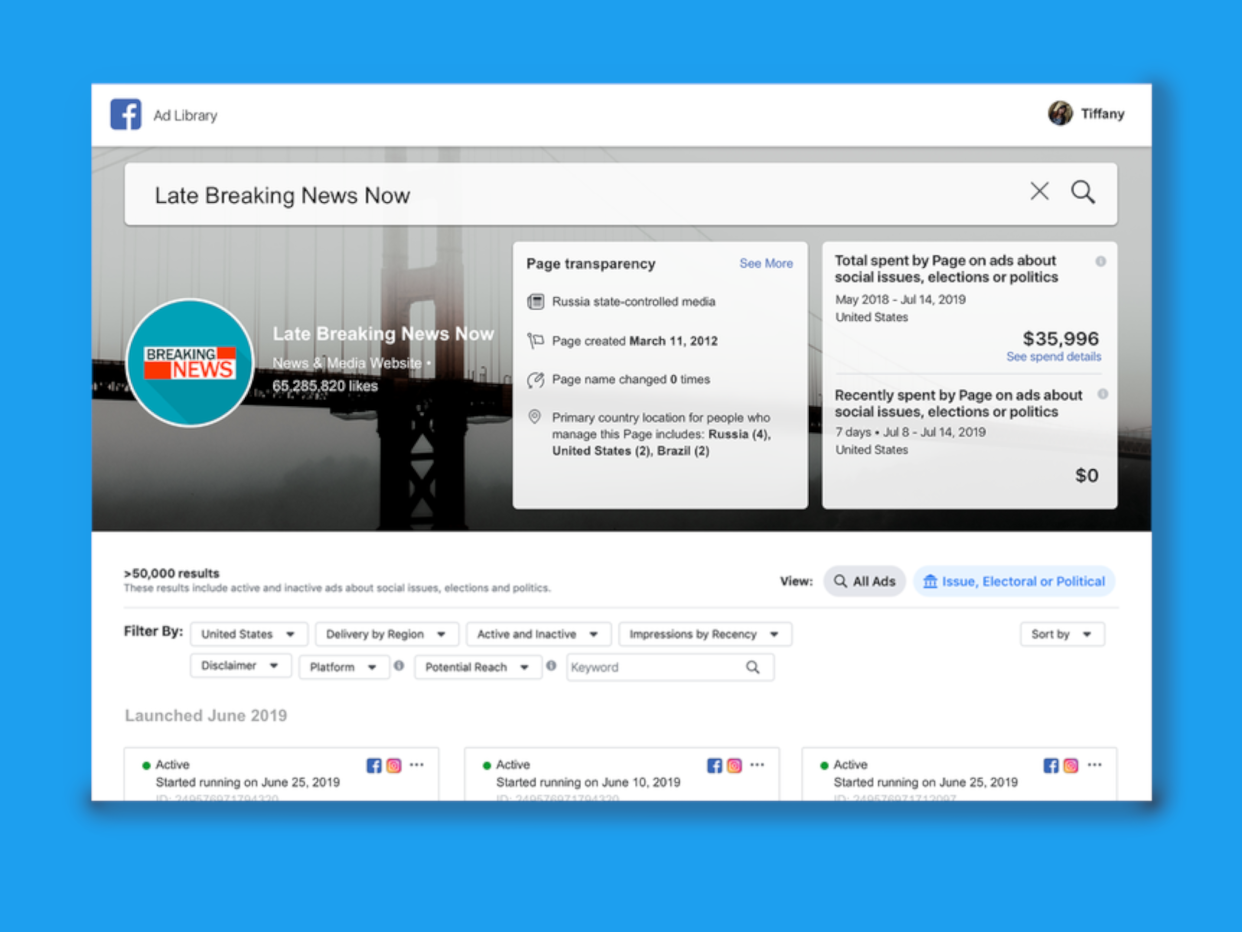Facebook starts marking 'state-controlled media' ahead of US election

Facebook has announced that it will begin labelling media organisations that are “wholly or partially under the editorial control of their government” in order to keep people informed as to when they are reading media that has been influenced by a state.
The company will also begin labelling adverts from these publishers later in the year and, before the US election in November, start actively blocking adverts out of “ an abundance of caution to provide an extra layer of protection against various types of foreign influence.”
The labels will appear in three places: globally, in Facebook’s Ad Libary Page view, on the Pages themselves, and in the Page Transparency section. In the United States, the label will appear on posts in the main News Feed over the next week.
Facebook will not have labelled all outlets yet. The company says that it has started with “a few outlets” and will be adding more over time.
There are a number of criteria for a media company to be classified as under the editorial control over the government, including the source of their funding, ownership structure, editorial guidelines, and accountability mechanisms and, should Facebook deem that there are enough protections to “ensure editorial independence” the label would not be applied.
Publishers proving themselves “independent” must demonstrate:
A statute in the host country that clearly protects the editorial independence of the organisation
Established procedures, processes, and protections at the media organisation to ensure editorial independence
An assessment by an independent, credible, external organisation finding that the statute has in fact been complied with and established procedures have been followed
Some organisations have already had this label applied: Russia Today’s Facebook “Page Transparency” section reads: “This publisher is partially or wholly under the editorial control of a state. This is determined by a range of factors, including but not limited to funding, structure and journalistic standards.”
This has also been applied to China’s Global Times, but has not been applied to the BBC or ZDF (Zweites Deutsches Fernsehen, or Second German Television) a German television station which is “run as an independent non-profit corporation under the authority of the Länder, the sixteen states that constitute the Federal Republic of Germany.“
This is not the first time a technology giant has labelled state-sponsored media. YouTube said that it would apply a similar label to content on its platform, but has been criticised for enforcing it haphazardly.
After a ProPublica investigation, the company labelled 35 out of 57 government-funded channels brought to their attention, but did not apply the labels to the 22 other channels with seemingly no explanation why the differentiation was made.
Such news also comes in the wake of Facebook criticising Twitter for fact-checking and labelling Donald Trump’s tweets about election fraud and the George Floyd protests, respectively, with CEO Mark Zuckerberg saying that social media sites should not be the “arbiter[s] of truth”.
Read more
Zuckerberg defends Trump posts despite Facebook staff walkouts

 Yahoo News
Yahoo News 
